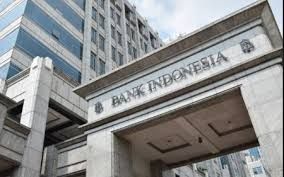Indonesia increases tax incentives for businesses
JAKARTA: Indonesia has increased tax incentives for businesses in a move to try and limit the economic impact of the coronavirus pandemic, its tax office said.
Previously announced tax relief due to expire in September, have been extended until the end of the year, a statement said. They include tax breaks for some manufacturing workers and small and medium-size enterprises, and a discount on corporate tax installments.
The government has also expanded the type of companies eligible to apply for the tax breaks, including, for example, forestry businesses in the scheme.
It has allocated nearly US$50bil in state spending to fight the coronavirus pandemic. That, and a projected drop in fiscal revenues, are seen expanding its 2020 budget deficit by more than three times the government’s original plan, to 6.34% of gross domestic product.
Finance Minister Sri Mulyani Indrawati has previously said the tax breaks were meant to prevent “massive bankruptcies”.
The government’s forecast for the economy, South-East Asia’s largest, ranges between a 0.4% contraction and a 1% growth. It grew 5% last year.
On Saturday, Indonesia overtook China as the country with the most confirmed coronavirus cases in East Asia, with 84,882 infections and 4,016 deaths.
Separately, The Jakarta Post reported that Bank Indonesia (BI) has cut its benchmark interest rate for the fourth time this year to bolster the recovery from the coronavirus pandemic, which has dealt a crushing blow to the country’s economy.
The central bank slashed its benchmark interest rate, the BI seven-day reverse repo rate, by 25 basis points (bps) to 4%, the lowest since 2016 last week.
“This decision is consistent with low inflationary pressure, maintained external stability and the need to speed up economic recovery during the coronavirus pandemic, ” said BI governor Perry Warjiyo.
“This decision is aimed at fully supporting economic recovery while also maintaining inflation and exchange rate stability.”
The central bank also lowered its deposit facility rate to 3.25% and its lending facility rate to 4.75%. The lower benchmark rate is expected to transmit into lower interest rates charged by banks on consumer loans, corporate loans and mortgages, as well as bond yields and other instruments.
The central bank expects the economy to have bottomed out in the second quarter and start recovering in the second half of the year, following the easing of restrictions imposed to curb the spread of the virus. The central bank expects the economy to grow by 0.9% at worst or 1.9% at best this year.
The country’s gross domestic product (GDP) is expected to have contracted by 3.8% in the second quarter and possibly shrink further in the third, which would mark Indonesia’s first recession since the 1998 financial crisis.
The governor reiterated the central bank’s commitment to the burden-sharing scheme with the government as part of the country’s Covid-19 response, which will see BI buy 397.5 trillion rupiah (US$27.16bil) in government bonds directly while fully bearing the interest cost.
BI will also bear the debt cost of the government’s stimulus package for small and medium enterprises and large businesses, estimated to generate 177 trillion rupiah in debt.
“Bank Indonesia is committed to buying sovereign debt papers in the primary market through the market mechanism and private placement to fund healthcare, social protection and stimulus for regional administrations, ” Perry went on to say.
The Finance Ministry expects the budget deficit to reach 6.34% of the gross domestic product this year as it has allocated 695.2 trillion rupian to boosting the economic recovery and strengthening the healthcare system in response to the pandemic. — Agencies
Source: https://www.thestar.com.my/business/business-news/2020/07/20/indonesia-increases-tax-incentives-for-businesses


 Thailand
Thailand




